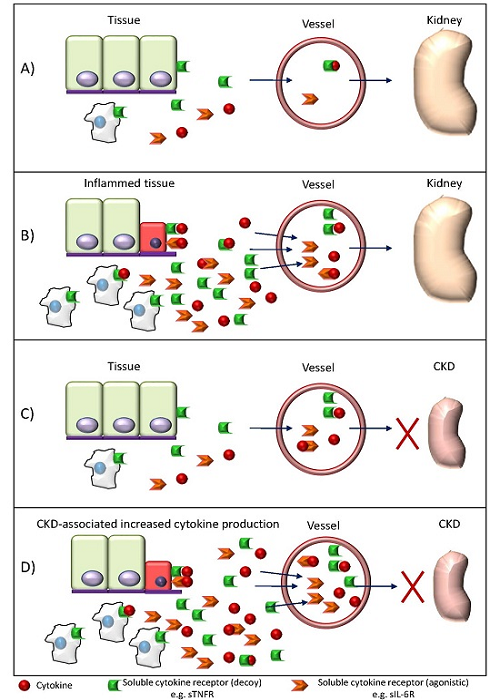|
Kidney failure and health sustainability
2023-05-19

Assistant Lecturer Areej Hamad Hassan,
University of Anbar /Upper Euphrates Basin Developing Centre
Chronic renal failure is a serious condition that requires continuous medical care and good health sustainability through periodic check-ups for a person's health safety. The kidney in people with this disease is unable to rid the body of metabolic products in the blood, as well as regulate the amount of fluids and electrolytes (sodium, potassium and calcium) and balance the value of (pH) of the blood, and if not treated properly, the disease may lead to more serious health problems such as organ damage and a significant decrease in immune indicators, which may lead to death. When inflammation occurs in the tissues of the kidneys due to immune and bacterial factors or through an inappropriate diet for the patient, the production of cytokines and their receptors in those tissues that suffer from inflammatory convulsions will increase and will lead to the attraction of large numbers of white blood cells to the affected and affected area of the kidney tissue, as shown in the figure below:

Therefore, patients with kidney failure should be careful and committed to conducting periodic examinations of some laboratory analyzes responsible for the work of the kidney to monitor their health and follow a healthy and balanced diet and appropriate amounts of proteins, sodium, phosphorus, potassium, vitamins, minerals and the amount of water, as well as get rid of bad habits such as smoking, alcohol and regular exercise, and they must also be careful to take the medicines prescribed by the specialist doctor. In addition, it is necessary for patients with kidney failure to receive support. Psychosocial support can help improve their quality of life and mitigate the impact of the disease on them in general.
Good health sustainability requires taking care of diet, exercise, good sleep, avoiding bad habits, maintaining psychological and social health, and in the case of patients with kidney failure, they must pay attention to their health aspect continuously and strictly follow the recommendations of the treating doctor.
Symptoms of kidney failure:
Clinical symptoms of kidney failure begin to appear on all body systems because the renal disorder has a general and comprehensive impact on the rest of the other organs of the body and the symptoms include:
· Mental and physical exhaustion.
· Lack of appetite.
· Itching. Ed.
· Lack or abundance in the amount of dieresis with the presence of many types of bacteria in the urine due to their lack of immunity.
· Peripheral neuritis.
· Pallor of the skin.
· Swollen legs.
#university_of_anbar
#Upper_Euphrates_Basin_Developing_Center |